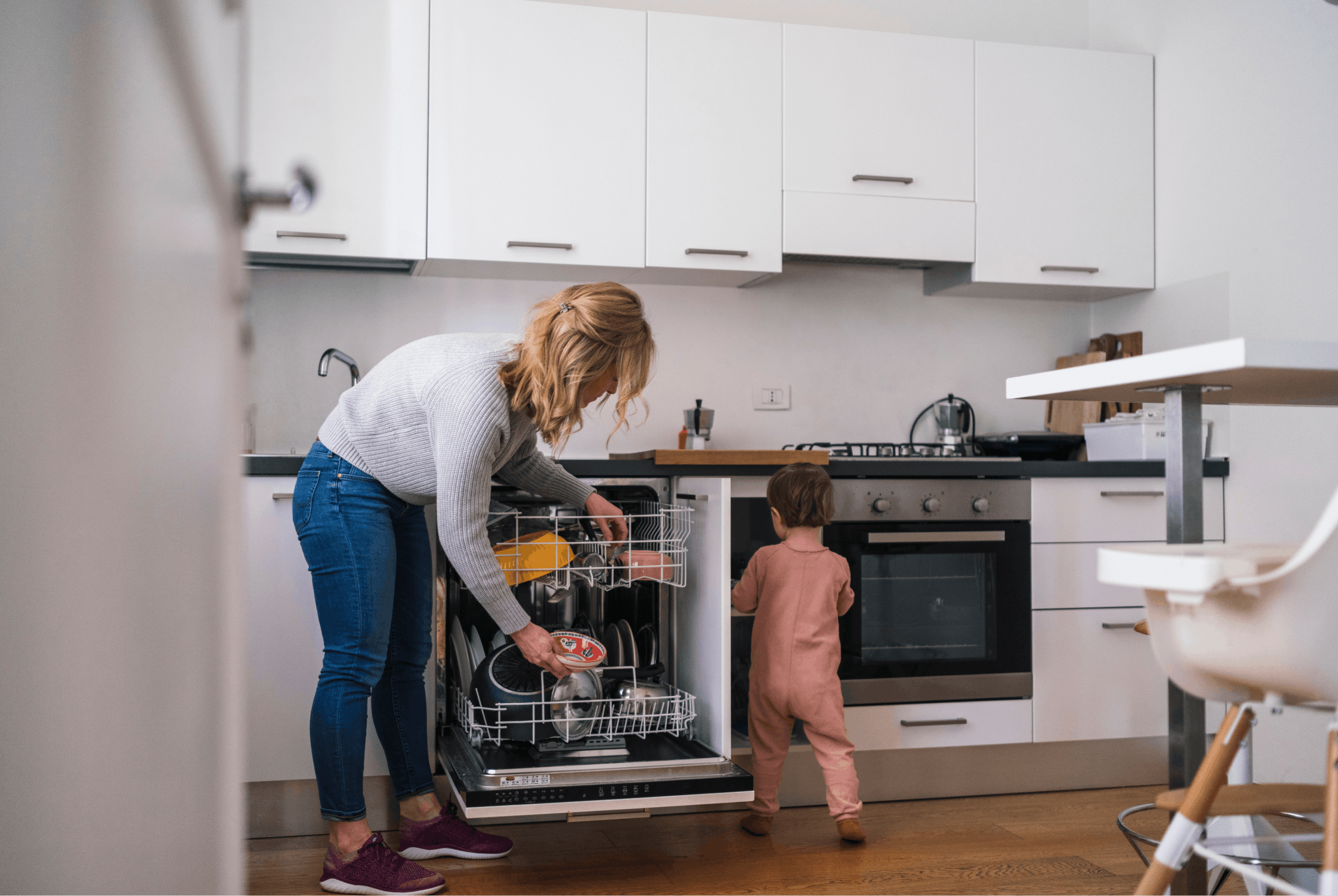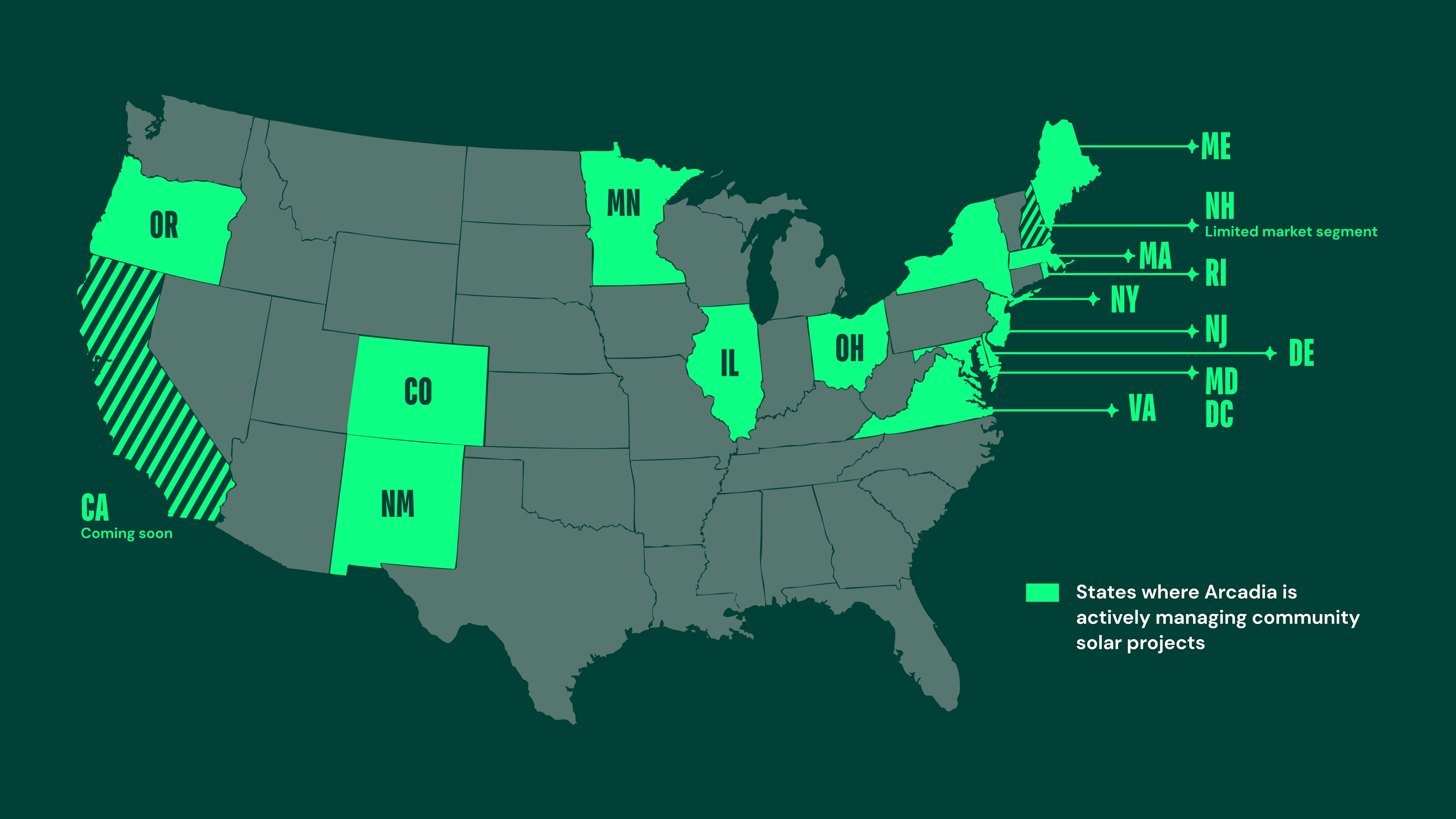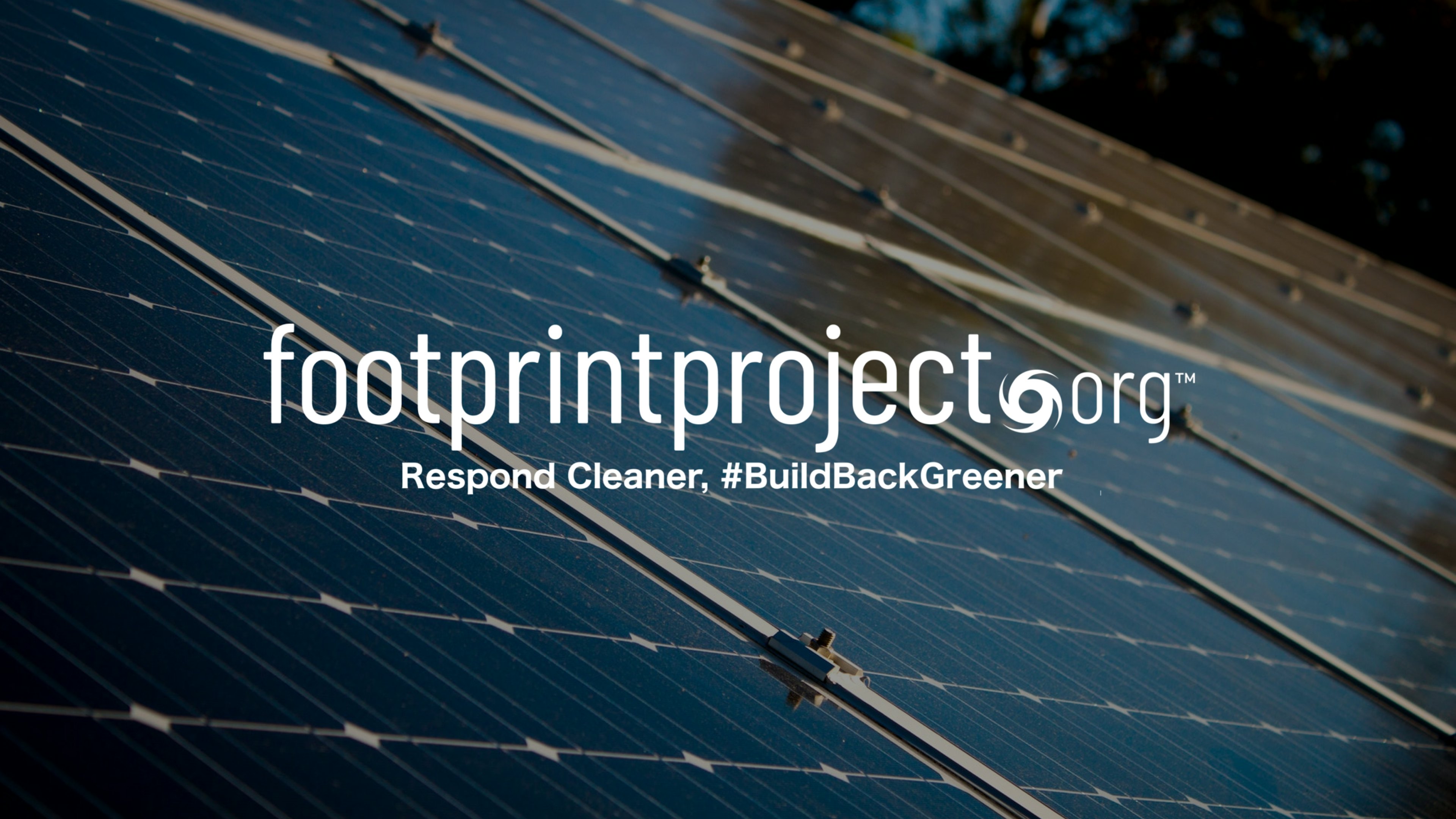What kind of solar power is right for you?
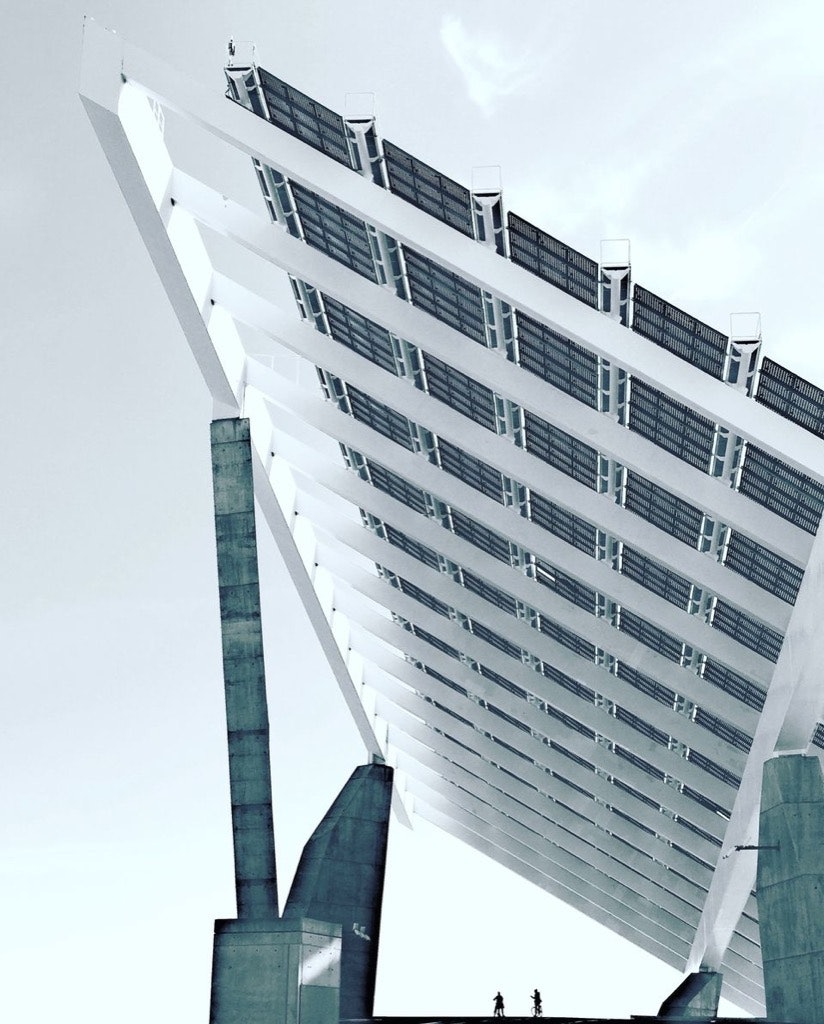
You know switching to solar energy is both a smart investment and good for the environment. However, it may seem like an intimidating project. We’ve simplified the solar puzzle, to help you understand your options and key decision factors.
Most of us have seen solar farms, with panels stretching for acres, but how would the power from that farm get to your house or apartment? Perhaps you’ve seen small solar panel clusters on a neighbor’s house – but what if you live in a shady neighborhood, or rent your property? If you do happen to own a nice, sunny roof, what other factors do you need to consider?
Basic options for residential solar power include:
- Participating in a community solar program
- Purchasing and installing solar panels
- Leasing a solar energy system
- Hosting a solar energy system
Community Solar!
Community solar is by far the best option for most Americans. There are many things standing in the way of most people installing solar panels on their own property. Cities and states all have their own regulations, and many require you to obtain specific permits in order to install solar panels on your property if they allow it at all. Additionally, you must own your home.
With community solar, anyone can sign up for a solar panel that is then hosted somewhere else. This includes homeowners, renters and even those that live in apartments. By simply signing up for a share in a community solar project -- for free -- in your local area, you then receive credits on your monthly electric bill depending on how much that project generates in a given month. The goal of community solar has always been to make the benefits of solar power accessible to all residential energy users, no matter where they live. The vast majority of Americans can’t put solar panels on their roof. There’s only about 8% of Americans that can. For the other 92%, community solar is an easy way to tap into solar power savings and support investment in your local community.
If you happen to have the resources, access and exactly the right conditions for installing your solar panels on your property, there are other solar power options you can explore.
Purchasing Your Own Solar Energy System
According to the National Renewable Energy Laboratory (NREL), most solar energy systems last 30 years and pay for themselves within 4-5 years, counting the tax credits and rebates you can claim. Therefore, switching to solar benefits both your bank account and your planet. However, if you decide to install a solar system on your own roof or property, you must consider many factors, such as the size of the system, the right equipment, the best installer, the warranty, price, etc.
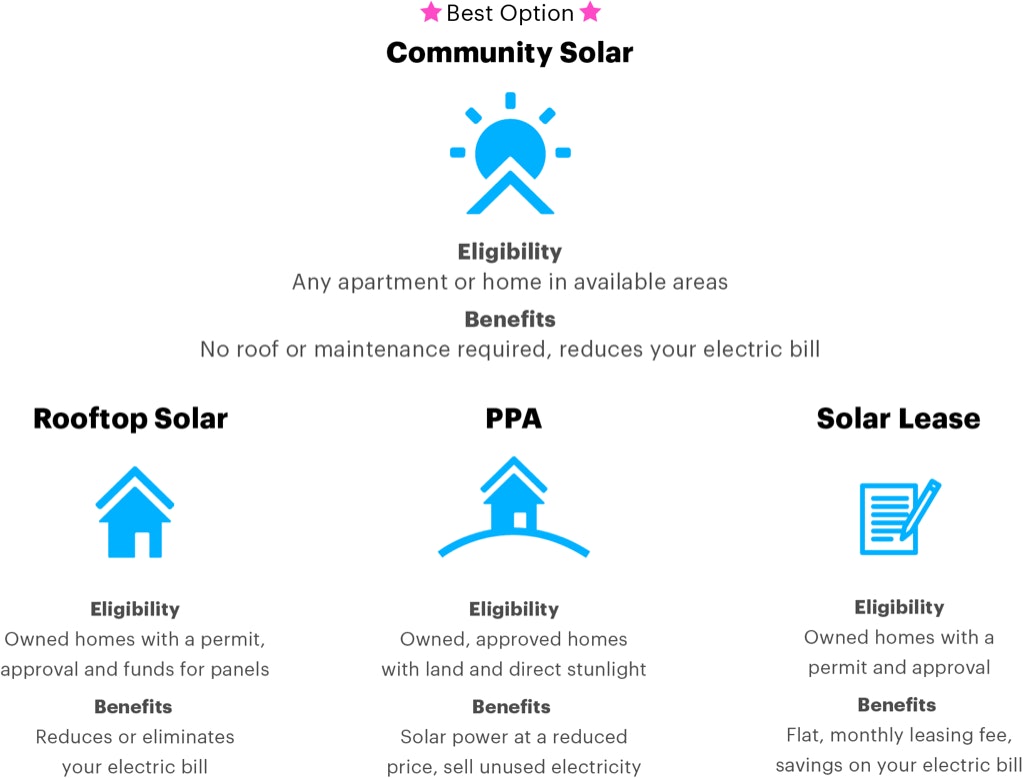
Solar Leases
Some homeowners get solar energy systems on their property without paying for the equipment. A third party (usually a solar company) owns the equipment, and the homeowner pays to lease it. With a solar lease, a homeowner can limit their upfront investment and avoid the responsibility for maintenance and repairs, while reducing their electric bills. Any unused electricity that their system generates will be sold back to their utility company, through a net-metering arrangement.
PPA’s – Power Purchase Agreements – for Hosting a Solar Array
If you own land in a sunny area, another option to consider is “hosting” a solar system for a local energy company. The solar company would do all the legwork and installation – getting the permit, determining the size and design, purchasing and installing the equipment, etc. – at little or no cost to you. You’d agree to buy the power back from the solar company, at a set price per kilowatt-hour. In most cases, you’d be able to negotiate a price that is lower than the standard rate charged for other consumers.
Still confused about the best choice for you? These case studies may help you zero in on the right option:
Jake and Julia Own a Home in Sunny California
Jake and Julia own a 3-bedroom home in Glendale, CA. With plenty of free California sunshine available, converting to their own rooftop solar panel system is a solid choice for this couple. They can make all their own decisions and reap all the rewards – which include reducing or eliminating their electric bills and receiving tax credits and rebates. Of course, their investment benefits the rest of us, too, with a cleaner environment and less dependency on fossil fuels.
Daniel Rents a Small Apartment in Brooklyn
Daniel’s very environmentally-conscious, but he doesn’t own his own home, nor does he have a rooftop or yard in which to place solar panels. After researching his options, he finds a great local renewable energy community solar project. By signing up, he is investing in his local community, and he’s able to save on his electric bill. Also, since his community solar farm negotiated with their solar energy provider to do the maintenance and repairs on the facility, Daniel avoids the responsibility of trying to learn all he’d need to know about choosing and maintaining his own system.
Tori Shares Her House in Massachusetts
Tori bought a house on Cape Cod and Jill moved in with her. They aren’t married and want to limit their joint investments. They’d love to use solar power, but buying their own system is impractical right now, so they choose a solar lease. A local power company places a solar energy system on Tori’s house, and Tori and Jill pay a flat monthly fee to lease that equipment and get their solar energy. They’re thrilled to see the savings on their electric bill!
Bill and Marjorie Have a Ranch on Family Land in Colorado
This couple owns acres of sunny space on which they can host a solar energy system for the local power company, so they opt for a PPA. The power company chooses solar panels designed with extra durability, to withstand the high winds and heavy snows that are common in this part of the country. Bill and Marjorie buy the solar power from this company, at a reduced price, and sell unused electricity back to the company as well.
Visit us again for more information on switching to solar, in our upcoming blog How it Works: Community Solar.
